Can Maine Coons drink milk?
Maine Coons are like any other domestic cat in that some adults and occasionally kittens are unable to digest milk and some milk by-products because they lack adequate amounts of the enzyme lactase. This enzyme aids in the digestion of milk sugars which is present in all dairy products.
The unabsorbed sugar, lactose, holds water in the small intestine. This leads to what veterinarians called "increased motility" and a large volume of stool. "Increased motility" means an increased capability to move which in other words means diarrhoea in layperson's terms. Diarrhoea is the passage of loose and unformed stool. And diarrhoea is a symptom not a disease.
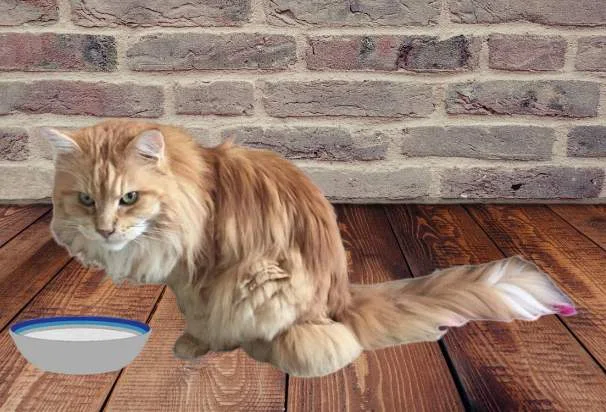 |
| Maine Coon drinking milk. This is a created picture as is probably obvious. Image: MikeB. |
Back in the day, when the cat owning public were less well-informed, they thought that giving their cat cows' milk was a treat. You'll see photographs of this on the internet. Milk is a treat to cats in terms of the taste because they love it as it contains fat, but it isn't a treat in terms of the effect that it might have on them. It is the same reason why cats love butter and often cheese.
My research indicates that not all adult domestic cats are lactose intolerant but upwards of about 70% are.
Apparently, and this applies to Maine Coon cats as well as non-purebred cats or indeed any individual cat, adult cats tend to prefer whole, homogenised, vitamin-fortified milk to a dilute product (stronger taste and more fat).
Research apparently indicates that cats can ingest 6 g of lactose per day without problems. Between 10-16 g of lactose per day causes intermittent and continuous diarrhoea. 6 g of lactose corresponds to 130 mL of cow's milk. A study decided that the maximum daily intake of lactose for a domestic cat is a 5 mL. But it must be combined with a base diet that is nutritionally complete. This info applies to Maine Coons but I wouldn't advise testing it.
Yes, I'm talking about domestic cats in general because in this context, Maine Coon cats are exactly the same. They do not have some special qualities in terms of their ability to digest lactose. Although they have some special qualities in terms of their appearance.
RELATED: Cat Health Tip: Treatment of Routine Diarrhea or Vomiting.
At the beginning of this article, I wrote that "occasionally kittens" are unable to digest milk. A study tells me that "the activity of the enzyme lactase decreased in activity with increased age in the kittens". This can be interpreted as kittens being more able to digest milk products than adult cats. This, once again, would apply to Maine Coons cats as well as other cats.
If your Maine Coon has diarrhoea and you are feeding her milk, the common-sense step would be to stop feeding them milk and either provide specially prepared cat's milk or water instead. If their diarrhoea continues you will have to do some detailed research because there are many reasons for diarrhoea. The obvious suggestion is to seek veterinary advice as soon as possible.
If you're Maine Coon has diarrhoea for less than 24 hours, it'll be okay but if it persists longer than that it is potentially serious as over a long period of time it can lead to extreme dehydration. A veterinarian should be consulted as soon as possible under those circumstances. The advice is to bring a sample of the diarrhoea to the veterinary clinic so that it can be assessed for parasites and bacteria.
RELATED: Is yogurt good for cats with diarrhea?
You can read about the likely causes of diarrhoea in domestic cats generally by clicking on this link.



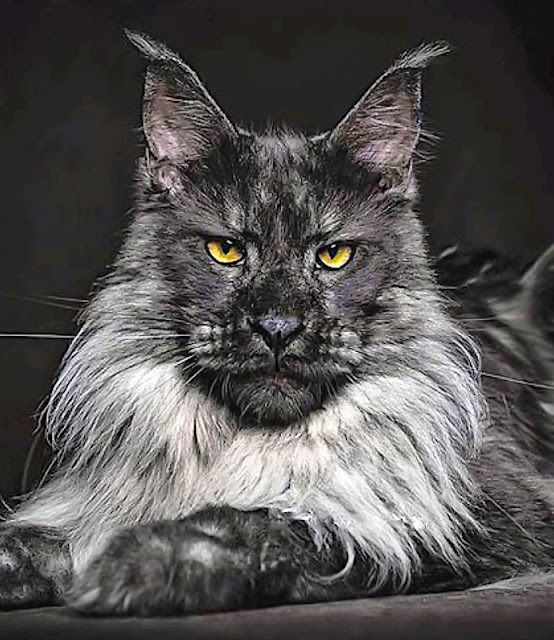


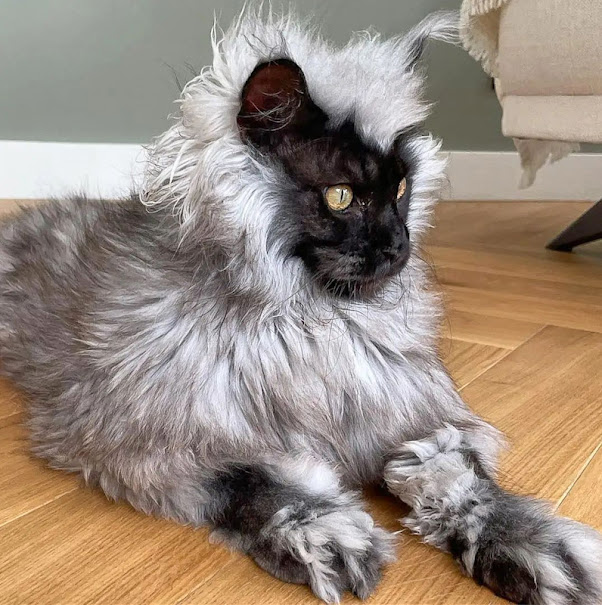

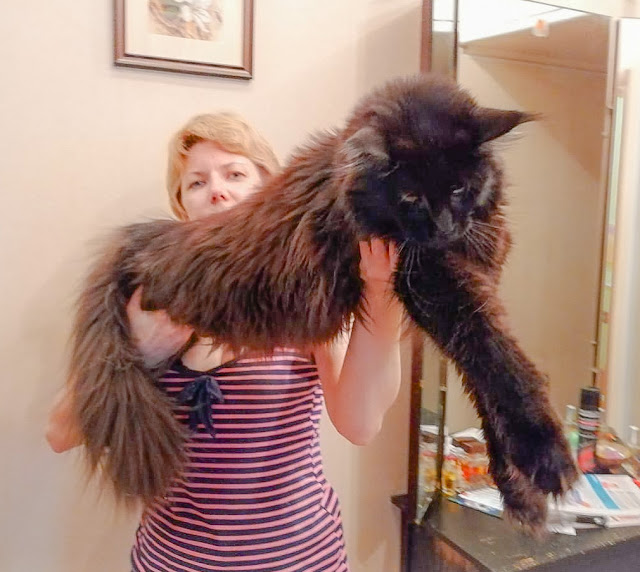
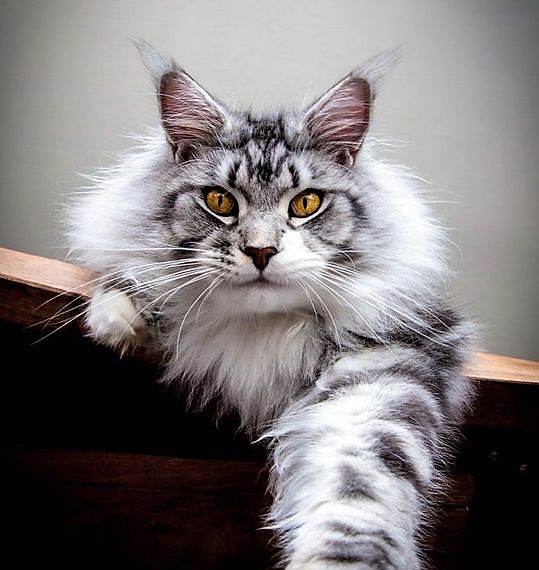
Comments
Post a Comment
Please share your Maine Coon experiences.